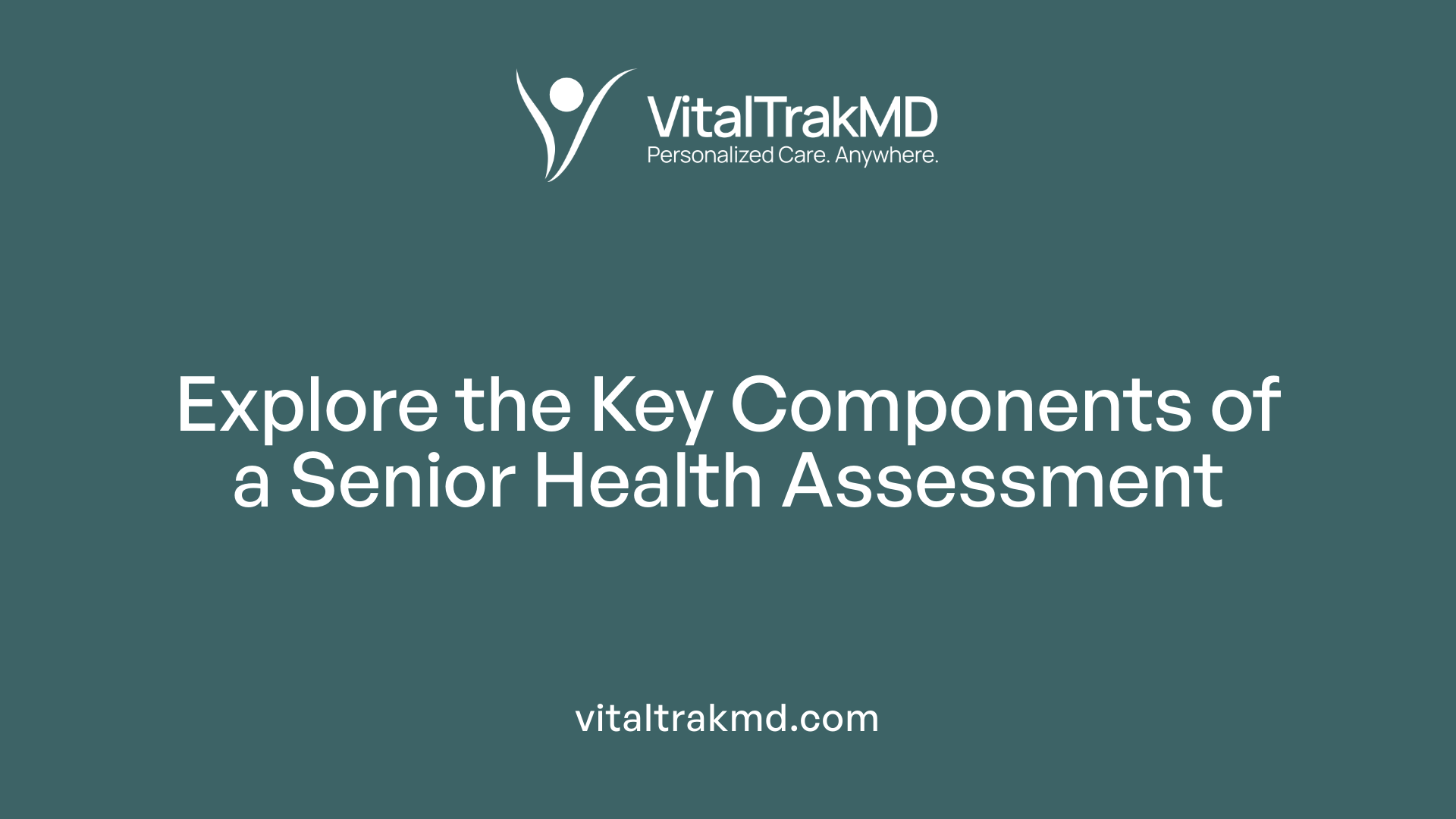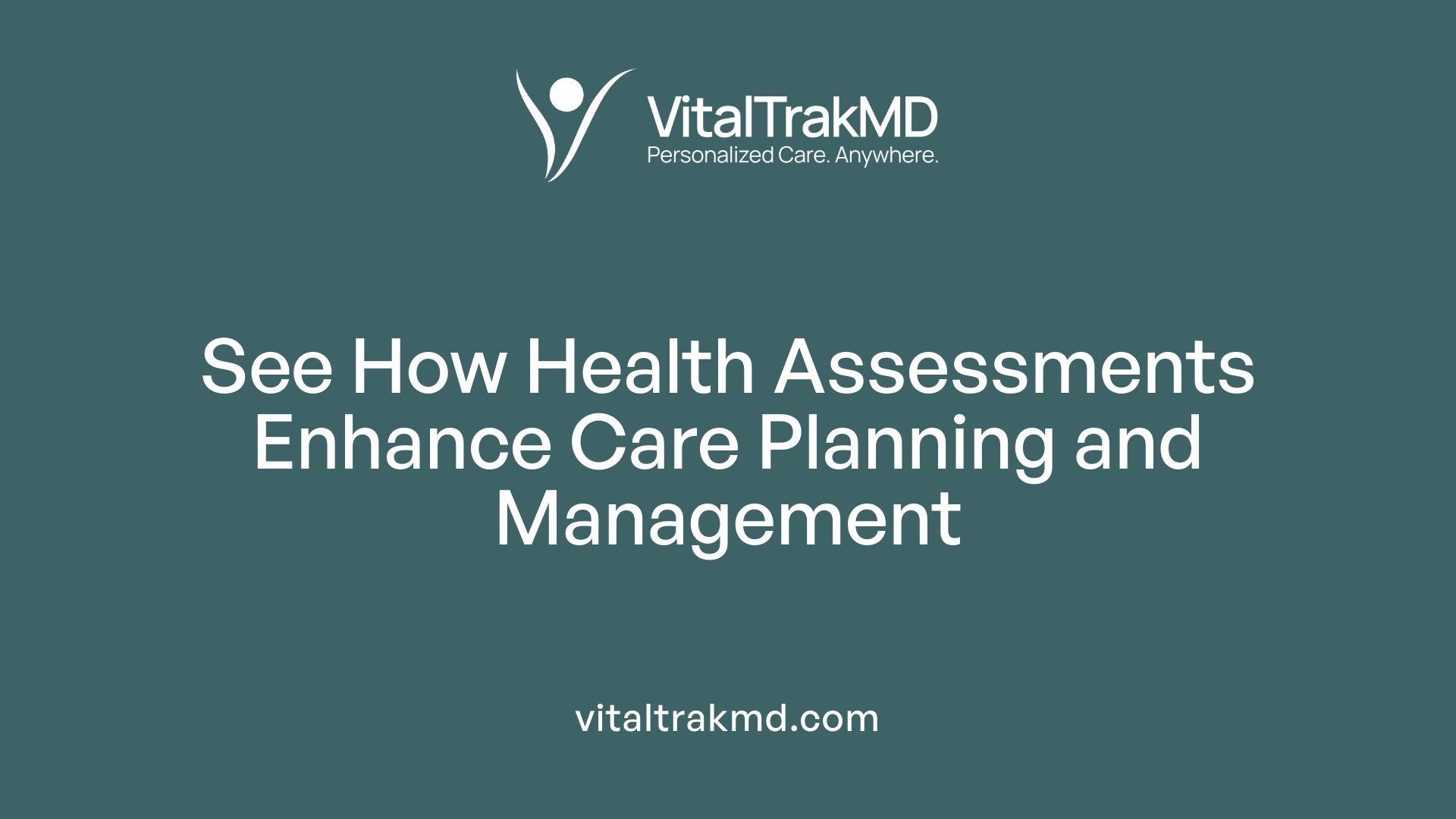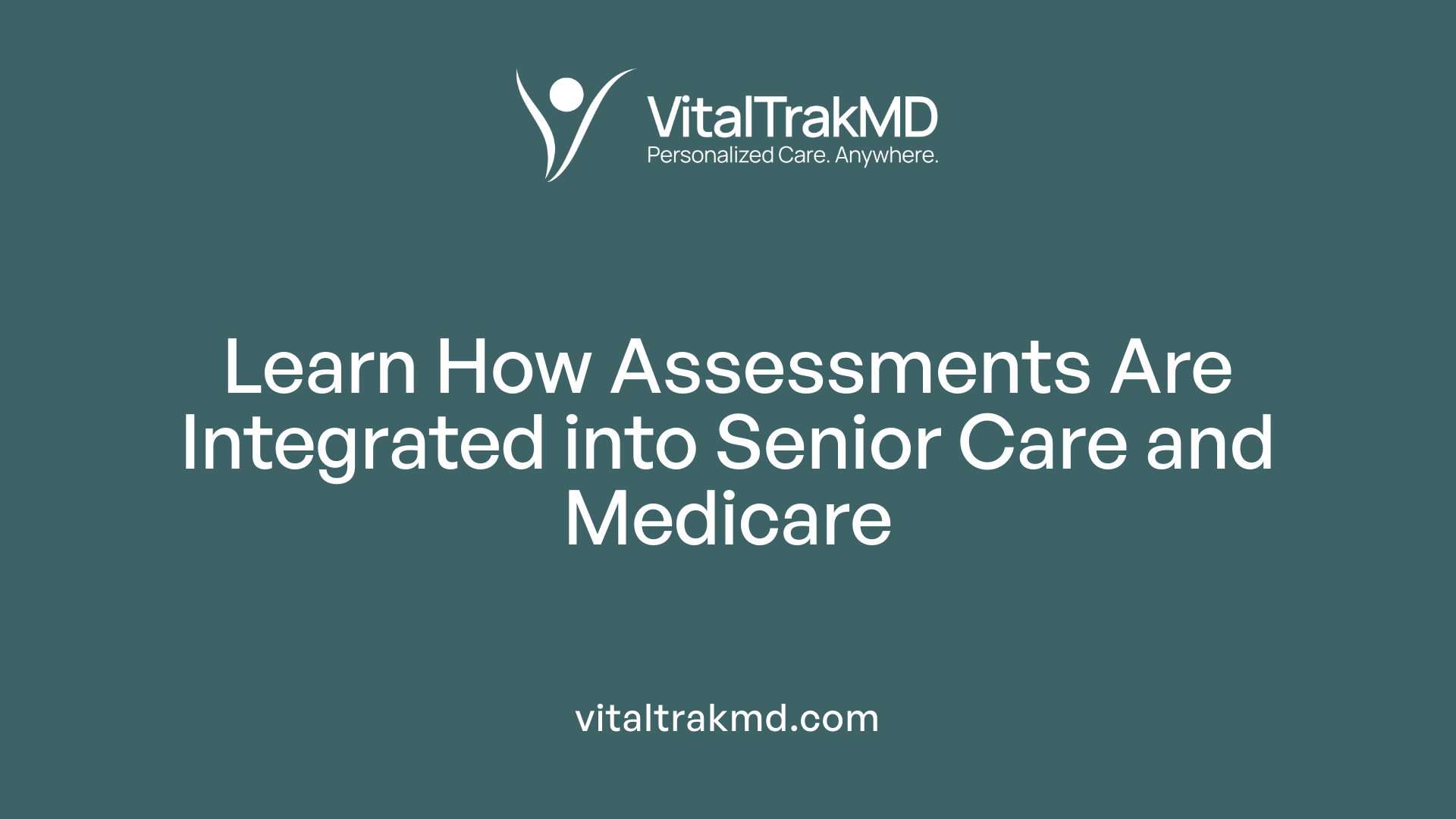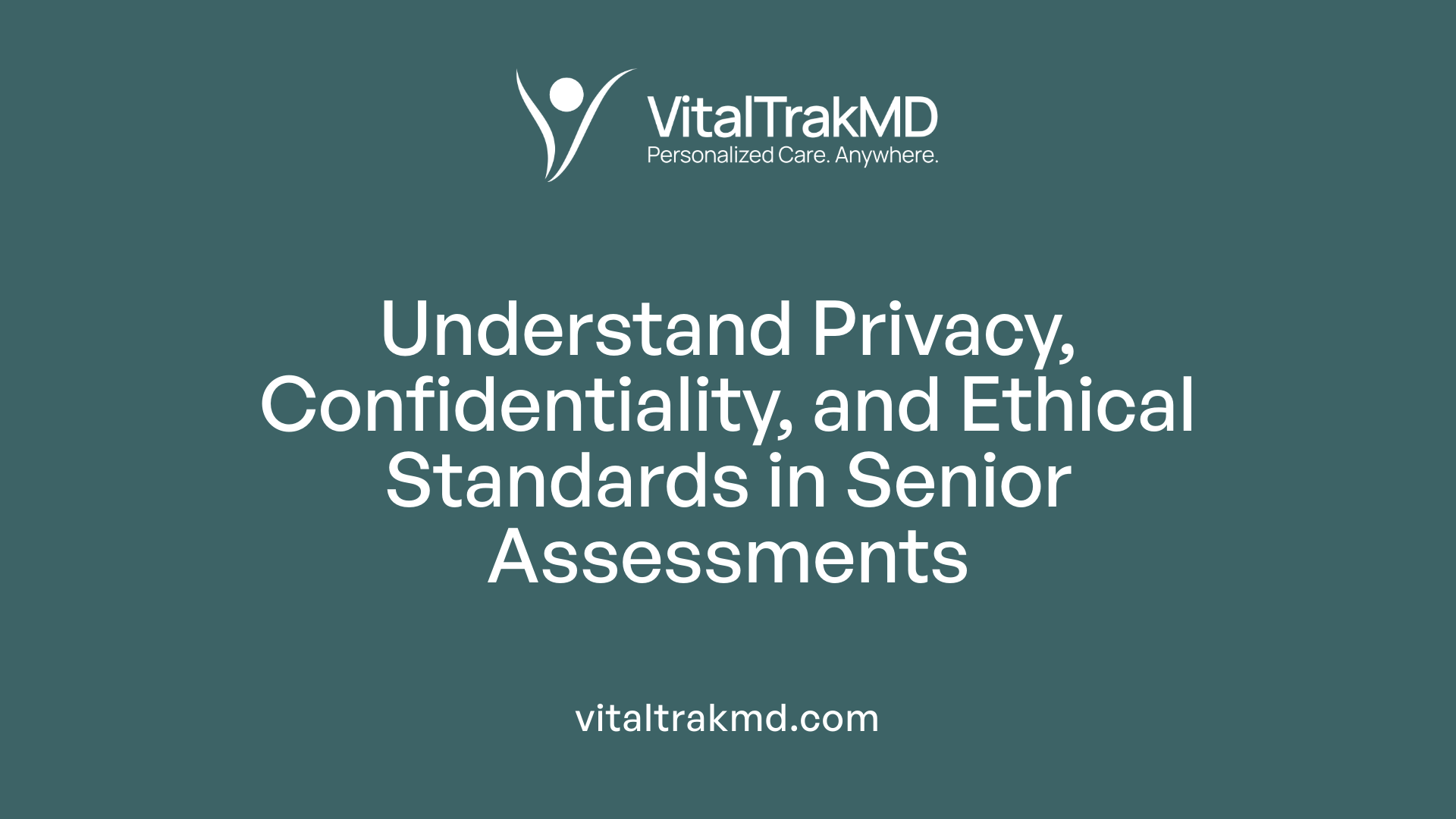What to Expect from a Personalized Health Assessment for Seniors

Understanding the Value of Health Assessments in Later Life
As individuals age, maintaining optimal health and independence becomes increasingly vital. A personalized health assessment for seniors is a comprehensive process that helps identify individual health risks, needs, and strengths. Conducted regularly, these assessments are designed to offer a holistic view of a senior’s well-being, covering medical, functional, cognitive, emotional, and social aspects. By understanding what to expect from these evaluations, seniors and their families can better prepare for proactive health management, leading to improved quality of life and safety.
Core Components of a Senior Health Assessment

What are the typical components included in a senior health assessment?
A senior health assessment, often referred to as a comprehensive geriatric assessment, is a detailed process designed to evaluate multiple aspects of an older adult’s health and well-being. It covers physical health, functional ability, mental health, and social circumstances to create a personalized care plan.
One of the main components is a review of medical history, including current health conditions, medications, immunization status, and past hospitalizations. This helps identify existing medical issues and potential health risks.
Functional assessment is also crucial and involves evaluating the senior's ability to perform Activities of Daily Living (ADLs) such as bathing, dressing, eating, and mobility. The Lawton Instrumental Activities of Daily Living (IADL) scale is commonly used to assess complex skills like managing finances, medication, and housekeeping.
The physical examination focuses on vital signs, vision, hearing, gait, balance, and screening for age-related health problems like osteoporosis. Screening for urinary incontinence, depression, cognitive decline, and sensory impairments is integral to detecting common geriatric issues.
Cognitive and mental health screening is vital to assess for dementia, depression, sleep disturbances, and emotional well-being. Tools like the Mini-Cognitive Assessment are often used to detect early signs of cognitive impairment.
The social and environmental assessment evaluates social support networks, home safety, and living arrangements. This aspect ensures that social needs are addressed and that the home environment is safe and supportive.
An interdisciplinary team, including physicians, nurses, social workers, and other specialists, collaborates to address these areas. This holistic approach helps develop a comprehensive and personalized care plan that aims to improve quality of life and independence.
What are the components included in a typical senior health assessment?
A comprehensive geriatric assessment covers a broad range of evaluations. Key areas include medical history, current health status, functional abilities, nutritional health, medication management, and mental health screenings.
Assessments extend to sensory functions such as vision and hearing, along with screening for risks such as osteoporosis, fall potential, and urinary incontinence. Socioenvironmental factors like living conditions, social support, and safety are also examined.
This multidimensional evaluation enables healthcare providers to identify vulnerabilities, optimize treatments, and recommend necessary interventions, whether that means medication adjustments, lifestyle modifications, or social support services.
In summary, senior health assessments are comprehensive evaluations that thoroughly examine physical, mental, and social factors, ensuring older adults receive personalized and effective care tailored to their unique needs.
| Component | Description | Typical Tools/Methods |
|---|---|---|
| Medical and health history | Review of health conditions, medications, immunizations, hospitalizations | Medication list, medical records, patient interview |
| Functional ability | Ability to perform ADLs and IADLs | Katz ADL scale, Lawton IADL scale |
| Physical examination | Vital signs, sensory functions, gait, balance | Standard physical exam, vision and hearing tests |
| Cognitive health | Memory, cognition, mental health status | Mini-Cognitive Assessment, depression screening tools |
| Social and environmental factors | Living situation, social support, home safety, community resources | Home safety checklists, social support questionnaires |
This comprehensive approach ensures a thorough understanding of an older adult’s health, promoting targeted interventions that enhance safety, independence, and overall quality of life.
What to Expect During a Senior Health Assessment

How are health screenings and physical exams conducted?
During a senior health assessment, various health screenings are performed to evaluate overall health status and identify potential problems early. These include checks of blood pressure, cholesterol levels, and blood sugar to monitor for hypertension, hyperlipidemia, and diabetes. Screenings for cancer such as colon, breast, cervical, and skin evaluations are common, along with immunizations like flu, shingles, and pneumococcal vaccines to prevent illness.
Physical examinations are comprehensive, measuring vital signs such as heart rate, blood pressure, and temperature. Assessments extend to vision and hearing to detect impairments that could affect daily life. Healthcare providers also evaluate mobility and fall risk by observing gait and balance. Regular checks of weight and body mass index (BMI) help monitor nutritional status. These evaluations aim to spot early health issues, prevent complications, and assist in tailored care planning.
What does a discussion about lifestyle and health habits include?
A significant component of the assessment involves reviewing lifestyle and health habits. Seniors are asked about their daily routines, including diet, exercise, sleep patterns, alcohol, smoking, and social activity levels. Providers review medication use, including prescription drugs, over-the-counter medications, and supplements, to ensure proper management and avoid adverse interactions.
Discussions also focus on mental health, cognitive concerns, and emotional wellbeing. Addressing issues such as memory problems, depression, or anxiety is vital for overall health. The team may also explore social determinants affecting health, like housing stability, social support, and access to healthcare services.
This conversation helps develop a holistic understanding of the senior's health background, promoting preventive measures and lifestyle modifications to improve quality of life.
How is the safety and environment of seniors evaluated?
Evaluating safety and the living environment is essential in a senior health assessment. Assessors observe the home environment for hazards such as poor lighting, clutter, and absence of assistive devices, which could increase fall risk. They may recommend modifications like grab bars, better lighting, or removing tripping hazards.
The assessment includes questions about daily routines that affect safety, such as mobility challenges or previous falls. Mental status and cognition are evaluated to identify confusion or memory issues that could compromise safety. The goal is to create a safe, supportive environment that promotes independence while minimizing risks.
Involving family members in this discussion can provide additional insights into the senior’s daily environment and safety needs.
What screening tools are used for cognition and mobility?
Screening for cognitive health and mobility is integral to a senior assessment. Cognitive function is assessed using tools like the Mini-Cognitive Assessment Instrument, designed to detect early signs of dementia or cognitive decline. These assessments evaluate memory, problem-solving, language, and orientation.
Mobility is evaluated through physical tests, observing gait, balance, and strength. Tools such as the Timed Up and Go test help determine fall risk and mobility limitations. Detecting issues early allows for interventions like physical therapy, assistive devices, or environmental modifications to improve safety and independence.
Implementing these screenings supports proactive management of age-related changes, encouraging aging in place and enhancing overall wellbeing.
| Aspect | Methods & Tools | Purpose | Additional Notes |
|---|---|---|---|
| Health Screenings | Blood pressure, cholesterol, blood sugar, cancer screenings, immunizations | Detect early health issues, prevent diseases | Includes bone density scans, lung cancer screening |
| Physical Exam | Vital signs, vision, hearing, gait, weight, BMI | Monitor physical health | Tailored to individual risk factors |
| Lifestyle & Habits | Questionnaire on diet, exercise, medication use | Promote healthy habits | Addresses mental health and social factors |
| Environment & Safety | Home safety observations | Reduce fall and accident risks | Recommendations for modifications |
| Cognition | Mini-Cognitive Assessment | Detect cognitive decline | Early intervention possible |
| Mobility | Gait and balance tests | Prevent falls, improve movement | Use of assistive devices if needed |
This comprehensive approach ensures not only the detection of health issues but also the development of personalized strategies to sustain and improve the quality of life for seniors.
How Health Assessments Aid in Care Planning and Management

How do health assessments support care planning and management for seniors?
Health assessments play a fundamental role in the care of older adults by offering a comprehensive picture of their health and well-being. These evaluations involve systematic questions and observations that identify medical conditions, physical and cognitive abilities, safety concerns, and social circumstances.
By uncovering health issues early, assessments allow healthcare providers to develop personalized care plans tailored to each senior's needs. For example, if an assessment reveals mobility challenges or memory impairments, specific interventions such as physical therapy or cognitive support can be incorporated into the care strategy.
Regular in-home or facility-based assessments help monitor chronic conditions like diabetes, arthritis, or heart disease. This ongoing oversight ensures treatments are effective and adjusted as needed, preventing complications and reducing hospitalizations.
Safety and fall prevention are critical components. By evaluating home safety and mobility, assessments help identify environmental hazards and promote modifications, reducing the risk of falls that can severely impact an elder’s independence.
Moreover, these assessments foster better communication among care teams, including doctors, nurses, therapists, social workers, and family members. Since they often involve a multidisciplinary approach, they ensure that all aspects of the senior’s health are coordinated and aligned with their personal goals.
The resulting detailed insights support timely interventions, promote a better quality of life, and help meet regulatory and reimbursement standards. Overall, health assessments serve as a cornerstone for proactive, patient-centered senior care.
Development of personalized care plans
The core outcome of health assessments is the creation of care plans that address individual needs, preferences, and living environments. These plans include medication management, lifestyle modifications, safety recommendations, and referrals to specialists when necessary.
Family participation during assessments further enriches the process, ensuring that caregivers’ observations and the elder’s wishes are incorporated into the care approach.
Monitoring chronic diseases
Chronic disease management benefits significantly from regular assessments. Monitoring symptoms, functional status, and medication effects enables adjustments that help control conditions and prevent acute episodes.
Safety and fall prevention strategies
Safety evaluations identify potential hazards in the home or care environment. Recommendations such as installing grab bars, removing tripping hazards, or using assistive devices help maintain safety and independence.
Facilitating communication among care teams
Comprehensive assessments provide vital data that streamline communication among various health professionals, leading to cohesive and effective care.
| Aspect | Description | Additional Details |
|---|---|---|
| Personalization | Tailored interventions based on individual needs | Adjusting medication, therapy, and environment |
| Chronic Disease | Ongoing management | Monitoring and adjusting treatments |
| Safety & Environment | Fall prevention strategies | Home modifications, assistive devices |
| Team Coordination | Communication and collaboration | Multidisciplinary approaches |
Through these activities, health assessments serve as a foundational element in delivering holistic, appropriate, and effective care for seniors, ultimately supporting their independence, safety, and quality of life.
Integration of Health Assessments in Senior Living and Medicare Programs

How do assessments in senior communities help in developing personalized care strategies?
Assessments in senior living environments play a crucial role in customizing care to meet each resident’s unique needs. These evaluations include detailed reviews of health and personal care requirements, daily routines, safety concerns, and social preferences. By examining a senior’s capabilities in activities like bathing, dressing, mobility, and nutrition, care providers can identify specific support needs and potential risks.
Furthermore, assessments incorporate cognitive and emotional health screening, medication management reviews, and evaluations of social engagement to form a comprehensive picture of the individual’s overall well-being. This thorough understanding enables care teams to create tailored care plans that specify medication schedules, suggest lifestyle modifications, recommend safety improvements at home, and connect residents with relevant specialists if necessary.
Family members and caregivers are encouraged to participate, providing insights that ensure the care plan aligns with the resident’s preferences and life goals. The ultimate aim is to improve the individual’s quality of life by fostering independence, safety, and emotional stability through personalized, holistic care.
How are health assessments integrated into Medicare Advantage or similar health programs?
In Medicare Advantage (MA) plans, health assessments—commonly known as health risk assessments (HRAs)—are embedded into the care model to evaluate beneficiaries' health status comprehensively. These assessments are typically conducted during initial enrollment and at least once every year, often through in-home visits by qualified health professionals such as registered nurses or care coordinators.
The assessments gather extensive information, including medical history, current health conditions, functional abilities, social determinants of health, and environmental safety. This data informs personalized care plans, enabling plans to tailor interventions, medication management, and preventive services to each enrollee.
HRAs also assist in identifying healthcare gaps and social risks, facilitating resource allocation and targeted support. Importantly, the data collected through these assessments contributes to risk adjustment models, which influence Medicare Advantage payments. Diagnosis codes extracted from assessments help justify the level of funding and ensure equitable resource distribution across plans.
Role of assessments in resource allocation and care planning
Accurate and detailed assessments are fundamental for optimizing resource utilization in senior care. By clearly identifying each resident's or beneficiary’s health priorities, risks, and support needs, healthcare providers and payers can allocate resources more effectively. For example, identifying mobility issues or safety hazards directs investments toward appropriate therapies, home modifications, or assistive technologies.
Additionally, assessments help anticipate future care needs, allowing facilities to plan staffing and services accordingly. In Medicare Advantage programs, the diagnostic information from assessments influences how funds are distributed, ensuring that plans can provide adequate levels of care based on the complexity of each member’s health conditions.
The use of standardized tools and multidisciplinary teams in conducting these assessments ensures comprehensive, accurate data that supports strategic decision-making. Ultimately, integrating assessment findings into care planning fosters a proactive, preventative approach that reduces unnecessary hospitalizations, improves patient outcomes, and enhances the efficient use of healthcare resources.
| Aspect | Description | Examples |
|---|---|---|
| Personalization | Tailors care strategies to individual needs | Medication plans, activity modifications |
| Resource allocation | Guides distribution of healthcare support | Assistive devices, home safety upgrades |
| Care quality | Enhances quality through targeted interventions | Fall prevention, cognitive support programs |
| Payment adjustments | Supports accurate Medicare reimbursements | Diagnosis coding, risk scoring |
This comprehensive approach underscores the importance of assessments in creating responsive, effective senior care systems that adapt to each individual’s evolving needs.
Confidentiality, Privacy, and Ethical Considerations in Senior Health Assessments

How do assessments aid in crafting personalized care strategies?
Health assessments are foundational to tailoring care that meets the specific needs of each senior. They gather detailed insights into an individual’s physical health, mental well-being, emotional state, and behavioral patterns. By examining these diverse aspects, healthcare providers can develop precise treatment plans, recommend lifestyle changes, and determine preventive measures tailored to each person’s unique circumstances.
These assessments often include physical exams, psychological evaluations, and lifestyle reviews, providing a comprehensive picture of the individual’s health risks and priorities. This detailed understanding enables clinicians to create targeted interventions, whether managing chronic diseases or addressing mental health concerns.
Furthermore, assessments foster greater patient engagement by involving seniors directly in their care planning. Patients who understand their health profile tend to adhere better to treatment regimens and feel more empowered.
On a larger scale, assessment tools help healthcare systems identify barriers and opportunities for delivering personalized care, supporting continuous improvements and ensuring holistic, patient-centered healthcare strategies. This approach not only improves health outcomes but also aligns treatment with personal preferences and goals.
What are the key privacy and confidentiality considerations during these assessments?
Protecting patient privacy during health assessments is fundamental and legally mandated by laws such as the Health Insurance Portability and Accountability Act (HIPAA). These regulations specify standards for safeguarding protected health information (PHI) across all formats, including electronic, paper, and oral communications.
Healthcare providers are responsible for implementing robust safeguards. These include encryption, secure storage, and controlled access to sensitive information. Only authorized personnel should access a senior’s health data, and sharing information outside permitted boundaries requires explicit patient consent.
Patients have rights to access their health information, request amendments, and be informed about how their data is used. Respecting these rights enhances trust and ensures compliance.
Physical privacy is also critical during assessments. Confidential conversations should occur in private, and consent should be obtained before any disclosure of information. Providers must be vigilant about data security, especially with electronic records, and ensure that third-party providers managing health data follow strict confidentiality protocols.
Ongoing staff training on privacy policies, cybersecurity measures, and incident response plans is essential for maintaining confidentiality. These measures uphold ethical standards, protect patient dignity, and foster trust in the healthcare relationship.
Who is involved in conducting assessments, and what roles do they play?
Typically, assessments in senior health care involve care coordinators, registered nurses, social workers, and representatives from healthcare agencies. These professionals are trained to ask pertinent questions, observe environmental safety, and evaluate health metrics accurately.
For more comprehensive evaluations, especially in complex cases, a multidisciplinary team may be involved, including physicians, therapists, pharmacists, psychologists, and neurologists. Each team member offers specialized insights, ensuring a holistic understanding of the senior’s health.
Assessment components include evaluating Activities of Daily Living (ADLs), nutritional needs, mobility, safety hazards at home, cognitive status, emotional well-being, medication management, and social support systems.
Family members and caregivers are encouraged to participate actively, providing additional insights and ensuring the care plan aligns with the senior’s values and preferences.
This collaborative approach ensures that assessments are thorough, accurate, and tailored, ultimately guiding personalized care that enhances quality of life.
How do legal and ethical standards influence assessments?
Legal standards such as HIPAA enforce the protection of patient information, emphasizing confidentiality and consent. Ethical principles in healthcare—like respect for autonomy, beneficence, non-maleficence, and justice—guide the conduct during assessments.
Respecting a senior’s right to privacy and informed consent is paramount. This includes explaining the purpose of assessments, obtaining approval, and ensuring understanding.
Assessors must also be trained to handle sensitive information ethically, avoiding unnecessary disclosures and maintaining professionalism.
When conducting assessments involving vulnerable populations, thorough adherence to legal obligations and ethical considerations is essential to protect rights and promote trust.
Is there a way to visually compare different assessment types?
| Assessment Type | Focus Area | Participants | Purpose | Typical Duration |
|---|---|---|---|---|
| Basic In-home Health Assessments | Medical, lifestyle, safety | Nurse, care coordinator | Identify health risks, personalized planning | About 30-60 minutes |
| Comprehensive Geriatric Assessment | Physical, mental, social | Multidisciplinary team | Optimize aging and quality of life | 1-2 hours |
| Senior Living Facility Assessment | Activities, environment | Nurse, social worker | Determine support needs | 20-30 minutes |
| Personal Health Assessment (PHA) | Health and wellness | Self-reported, coach | Develop wellness plan | ~12 minutes |
This table highlights how different assessments target various aspects of senior health, guided by specific goals and involving tailored personnel.
Empowering Seniors for a Healthier Future
In conclusion, a personalized health assessment is a cornerstone of effective senior healthcare, ensuring tailored, comprehensive, and proactive management of health and well-being. Regular assessments facilitate early detection of health issues, foster better communication among providers, and support the development of personalized care plans that respect the individual’s preferences and needs. As these assessments become an integral part of senior living communities and health programs like Medicare Advantage, they ultimately serve to enhance safety, independence, and quality of life. Empowered with knowledge and supported by vigilant privacy practices, seniors can confidently navigate their health journeys, enjoying the benefits of a holistic approach to aging well.
References
- How Medicare Advantage In-Home Health Assessments ...
- What to Expect from a Non-Medical Home Care Assessment
- Signs Your Loved One Needs a Geriatric Assessment
- What to Expect From Assessed Healthcare in Senior ...
- What You Need to Know About Senior Living Assessments
- Your Personal Health Assessment
- The Geriatric Assessment
- Understanding Personalized Senior Care
- How Medicare Advantage In-Home Health Assessments ...
Recent articles
Want to Feel Better and Live Healthier?
Join hundreds of patients taking control of their health with personalized care that fits their life – not the other way around.
Rated 4.8/5 by 32+ customers







